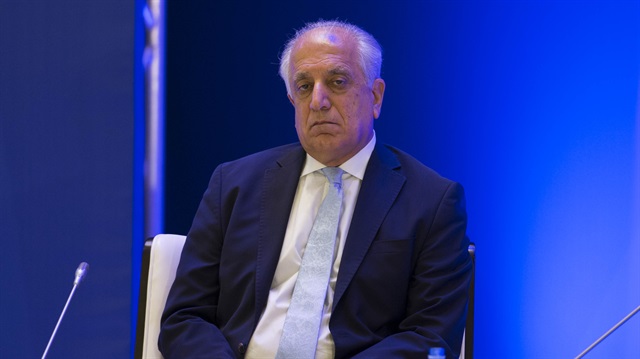
The U.S. envoy for Afghanistan peace efforts arrived in Kabul on Saturday after meeting Taliban leaders in Qatar in an effort to find a way to end the 17-year-old war in the country, three Afghan officials said.
Zalmay Khalilzad, the Afghan-born U.S. adviser, met with Afghanistan's President Ashraf Ghani on Saturday and briefed him about his 10-day tour of four countries conducted in a bid to bring the Taliban to the negotiating table.
A senior member of the Taliban confirmed that Khalilzad met the Taliban leadership on Friday in Doha.
"Both sides discuss prospects of peace and the U.S presence in Afghanistan," said the official, requesting anonymity.
U.S. officials in Kabul were not immediately available for a comment on Khalilzad's visit.
Last month, Khalilzad was appointed as U.S. Special Representative for Afghanistan Reconciliation as President Donald Trump's administration launched fresh efforts to hold peace talks with the Taliban.
Khalilzad's trip started out from Afghanistan. He travelled to Pakistan, the United Arab Emirates, Saudi Arabia and Qatar before returning to Kabul.
A senior official working with President Ghani said Khalilzad briefed Ghani about his meetings with senior ministers and top diplomats in four countries who could play a key role in peace talks with the Taliban.
Western and Asian diplomats in Kabul said Khalilzad, 67, has knowledge of the country's main languages, culture and politics that could help him engage with all stakeholders in the peace process.
"The Trump administration and Ghani's government are now banking on Khalilzad to find a diplomatic way to end the war with the Taliban," said a top Western diplomat in Kabul. But ongoing fighting has raised questions about the viability of the U.S. strategy to end the war, which for the past year has focused on forcing the militants, largely with more air strikes, to the negotiating table.
Last week the Taliban demanded a complete withdrawal of foreign forces as the only solution to end the war as they ramped up attacks in strategic provinces. They also directed Afghans to boycott parliamentary elections scheduled for Oct. 20.
At least 8,050 Afghan civilians were killed or wounded in the first nine months of 2018, almost half of them targeted by suicide bomb attacks and other improvised devices that may amount to war crimes, the United Nations said last week.





